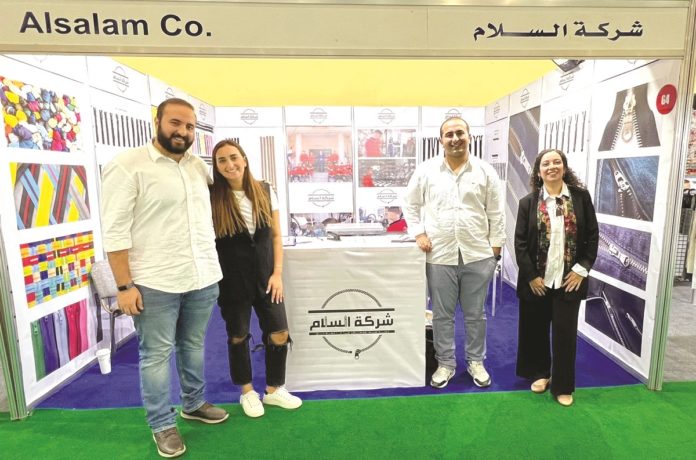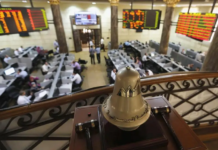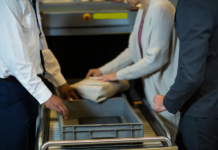The 71st Cairo International Fashion & Textile Expo held on 6-8/10, reflected the growth of the garments sector in Egypt through the display of the latest Fashion designs ranging from Sportswear to Machinery reflecting the sustainable growth of the sector.
The Middle East Observer team visited the Event and had talks with Businessmen regarding the challenge of importing raw materials, local market sufficiency and increasing exports, and have had variable feedbacks in the process.
Mr. Mohamed Atef, General manager of Pyramids company, states that the Expo includes around 200 Egyptian exhibitors for textiles, clothes and leather; the Expo also hosts foreign exhibitors from China, India, Turkey and Pakistan. Foreign manufactures are keen to market their products within the Egyptian market; following the economic challenges that are taking place around the world, the Egyptian market is becoming an attractive one, as it is a strategic market and can compete well with the Chinese market, he explains.
“Currently we are witnessing a turning point within the manufacturing process in Egypt; putting restrictions over importing is for sure considered a push to turn inwards the Egyptian market and start to manufacture more; nevertheless I would say that the government needs to put off the restrictions over importing certain raw materials that some Egyptian manufacturers need for unleashing their production capabilities and recently the government started to take this step, he states.”
“I believe that exporting the Egyptian products is something that we need to focus on more within in the coming few years; with the foreign currencies setbacks due to the Russian war, the Egyptian market can pretty much act as a substitute due to its reasonable price of shipments, he concluded”
Youssef Saber, owner of Al Salam Factory for Zippers , which was established in Cairo in 1982 says that his company has been joining the Expo for many years and the contribution has been very fruitful as it works on solid B to B marketing strategies.
Regarding the competitiveness of the Egyptian product within the International market, Saber explains that the Egyptian product during the last few years has been struggling due to the fact that the merchants are more into buying the Chinese products, which are usually cheaper, but made with less quality.
“This is why I would say that putting restrictions on importing raw materials from foreign countries has a positive impact on using more Egyptian raw materials in the manufacturing process; it’s a plus point .”
Regarding exports, Saber points out that, as a businessman he used to do more exports in the past few years; however, these days products that are made in China are invading various foreign markets, and the Egyptian product does face challenges to compete with the Chinese products within the foreign market as the Chinese product is cheaper; but nowadays the market is witnessing a slowdown demand on the Chinese product as it recorded many delays and the middle east is becoming a hit destination to import from.”
“As a businessman my golden equation is to balance between working on the quality of my product, meanwhile maintaining a reasonable price and this would help much to achieve more imports and compete with the Chinese presence within the market, he concluded”
Ahmed Shahin, Vice Chairman of Chertex Jeans, which has been operating since the 70s, points out that his factory used to import the needed raw materials, however nowadays, they are depending more on using local raw materials.
“It is a challenge for sure, to purchase raw materials from the local market, as the quality is not consistent, but once you find a good merchant, things go more smoothly. Currently, we need to focus more on the manufacturing field , as the Egyptian market has not yet achieved its self-sufficiency within the garment and clothes market, he concluded.”
The market for Garments in Egypt is still a market that has room for growth and expansion, and promises to be an eminent manufacturer and exporter within the Region and Africa, yet local players in the field of raw materials, and import replacements need to work on sustaining their quality to guarantee the most important factor in the equation for expansion of the garments market locally and increasing the volume of sales internationally, as the current international currencies instability marks as an opportunity for these companies to make the leap needed for increasing exports.













